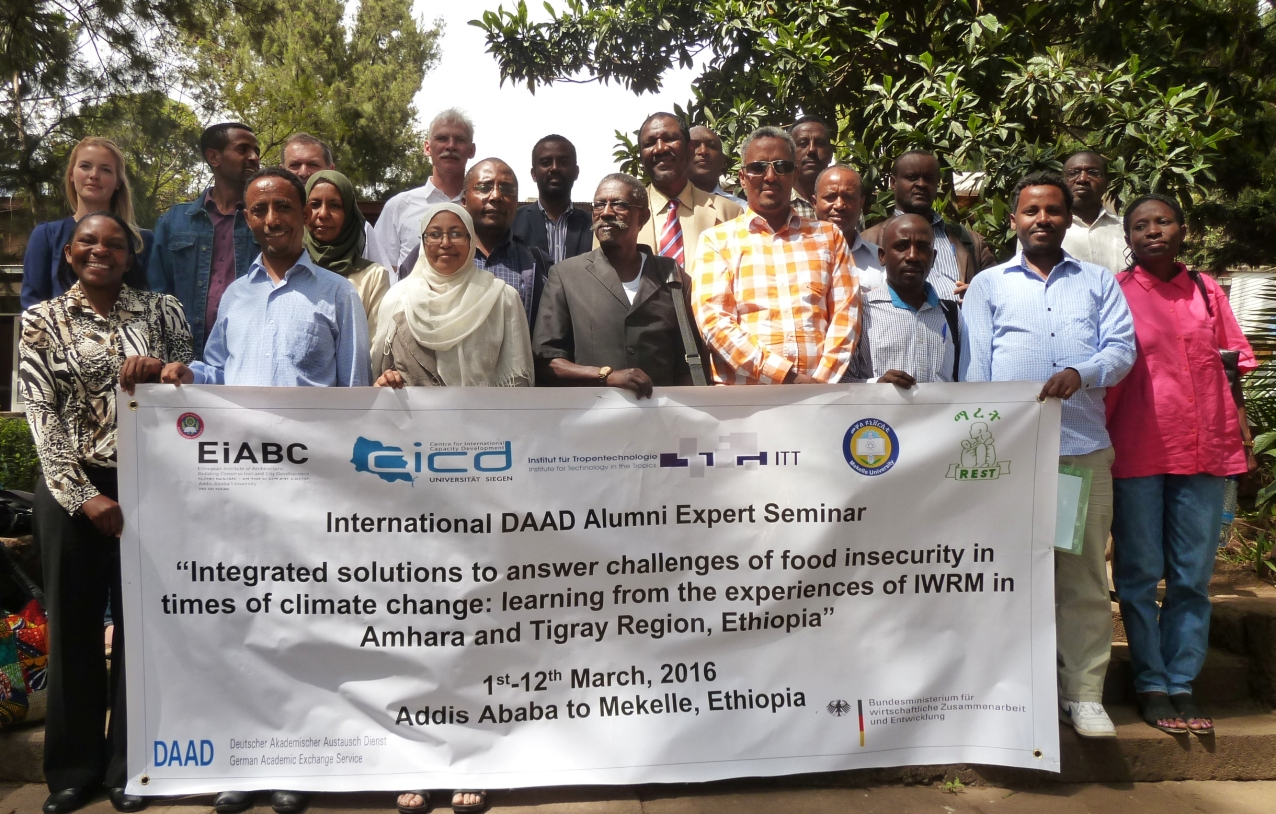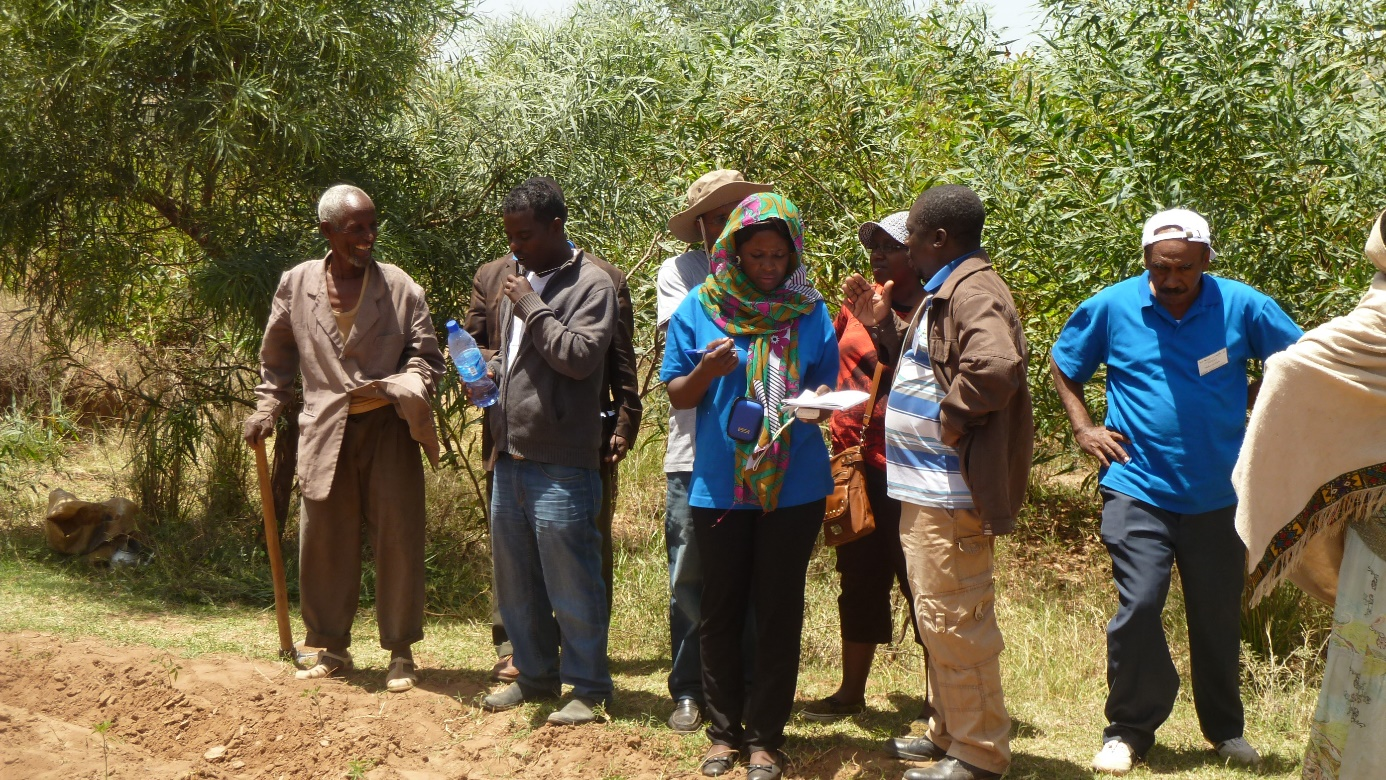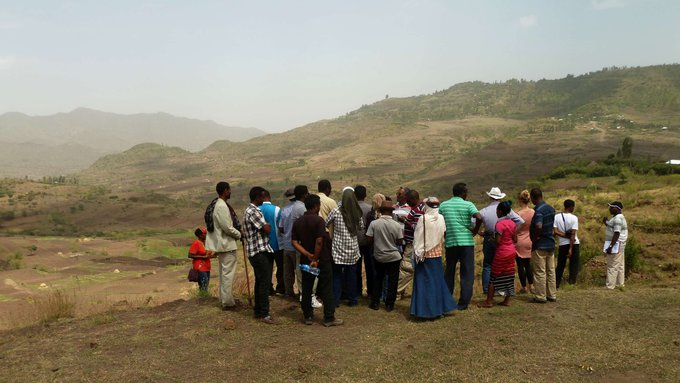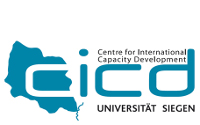Alumni Ethiopia
“Integrated solutions to answer challenges of food insecurity in ties of climate change”
Ethiopia
DAAD
2015 – 2016

In 2015 and 2016, two alumni seminars were held in northern Ethiopia. The German Federal Ministry for Economic Cooperation and Development (BMZ) provided funding through the German Academic Exchange Service (DAAD).
Both were organized and conducted by CICD of the University of Siegen in collaboration with the Relief Society of Tigray (REST) and the Ethiopian Institute of Architecture, Building and Urban Development (EiABC).
The University of Addis Ababa and the Cologne University of Applied Sciences, Institute for Technology in the Tropics (ITT), were involved as part of the German Alumni Water Network (GAWN).
20 German alumni participants from Ethiopia, Kenya, Uganda, Tanzania and Sudan with professional background in IWRM shared their experiences with the participants from REST, Mekelle University, Tigray Agricultural Office , GIZ and other institutions in the region..
East African countries are struggling with the effects of climate change and associated changes, such as increasing soil degradation, poor natural resource management, population pressure, and food insecurity. The highlands of Ethiopia have been facing these challenges for three decades.

The Ethiopian government, together with regional and international partners, has made positive progress in designing and implementing policies to address the crisis in agriculture, socioeconomic development, poverty reduction, and improved food security.
Therefore, the Tigray region was selected as a learning site because it is considered a model and learning center for effective natural resource and watershed management.
The aim of the seminar were:
- Exchange and improve existing knowledge, skills, and experiences of alumni in various fields of study from East African countries,
- Identify and document success stories and best practices,
- Identify project challenges and gaps,
- Provide scientific input on the gaps and challenges identified by the project.
Based on the experiences of the first seminar, the second seminar took place in March 2016 in Mekelle, Ethiopia. 21 German alumni with different professional backgrounds related to IWRM participated and shared their experiences with participants from the Relief Society of Tigray, Mekelle University, the Ministry of Agriculture, GIZ and other institutions as well as farmers from the region..
Experts from the partner REST and Mekelle University ensured the integration of concepts into the existing institutional framework and the implementation of the planned activities. Two lecturers from ZEW, University of Siegen, and one lecturer from ITT Cologne participated as organizers and administrators.
The goal was to gain more insight into the institutional framework, thereby enabling the successful implementation of natural resource conservation measures..
Field work is already underway in several areas of the southern Tigray region. Models for multiplying best practices in the highlands of Ethiopia will eventually be developed by East African and local alumni to identify pathways for similar implementation in adjacent regions.

Before, during and after the field visits, experts from the Ministry of Agriculture, Ministry of Water Resources, REST, Addis Ababa University (EiABC) and Mekelle University gave an overview of the past and current status of bio-physical and socio-economic aspects of Tigray and Amhara Regional State, while participants commented on the presentations and shared their experiences and knowledge from their countries with their Ethiopian counterparts and community leaders.
A bus trip from Addis to Mekelle with stops along the way provided an overview of soil and water conservation activities in Amhara and the southern Tigray region. The northern part of the Tigray region had already been covered in the first year of the project. The trip started in Addis Ababa towards Kemisie and extended through Dessie, Hayek, Woldeya, Lalibela, Kobo, Alamata, Raya Azebo, Endamehoni and Korem to Mekelle. The expert group was divided into four focus groups whose task was to give more attention and analysis to the integrated solutions of "irrigation techniques", "food security packages", "soil and water conservation" and "socio-economic aspects".
Overall, the entire project was very well received by the participants and the knowledge gained will be incorporated into further research work in the field.
